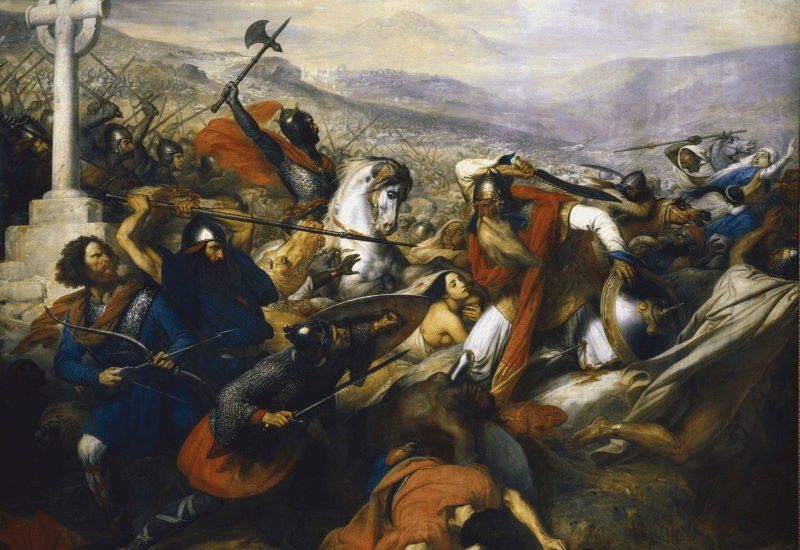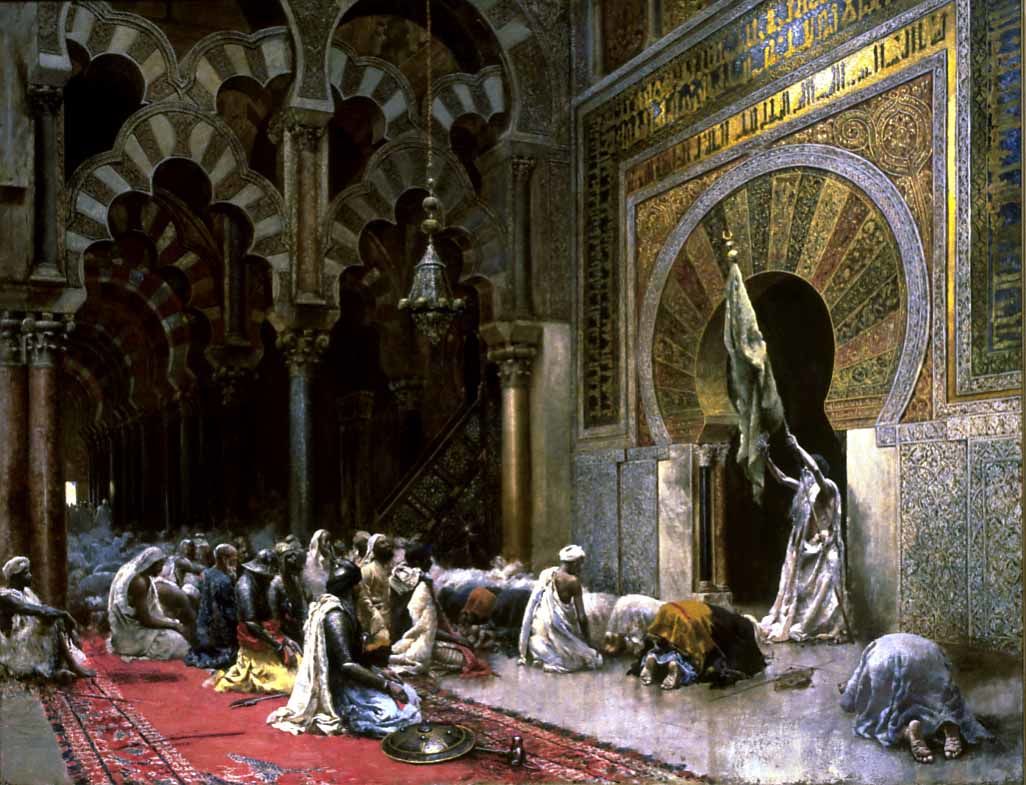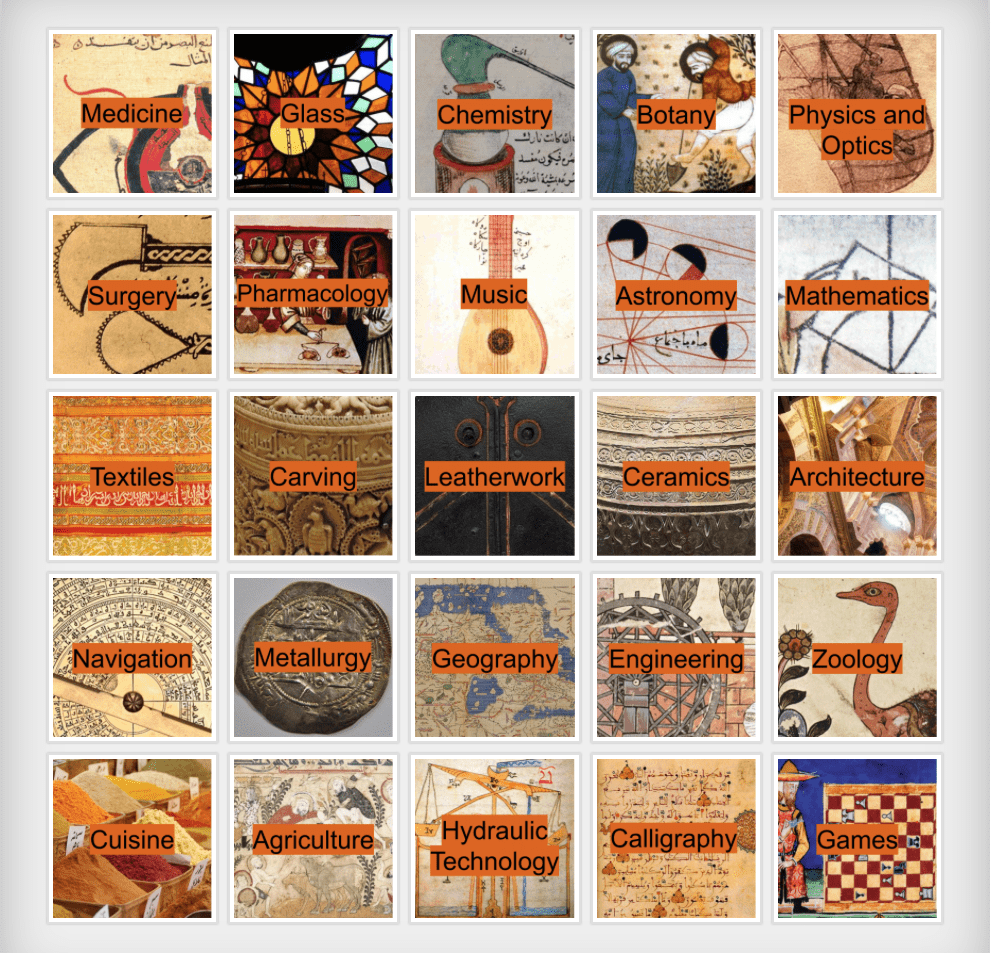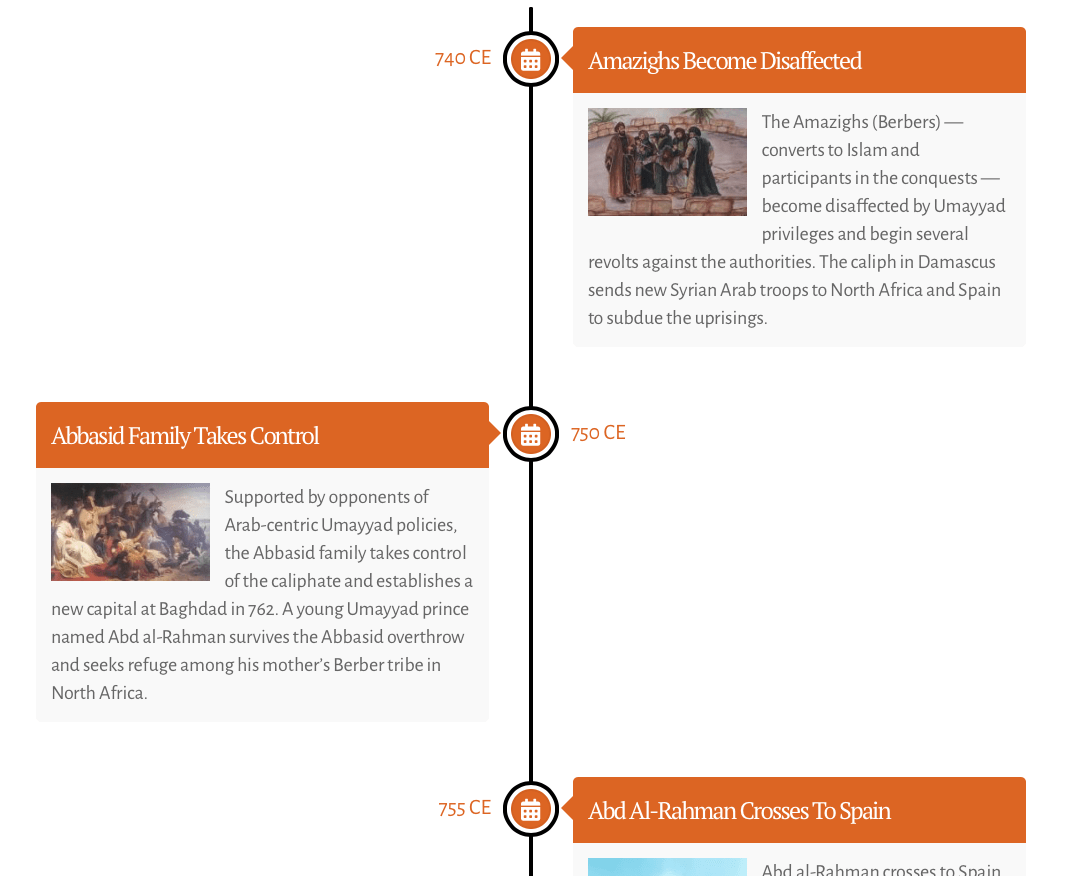Main Content
Islamic Spain
Explore the fascinating history of Islamic Spain, as well as the developments in science and culture and arts and literature that paved the way for European discoveries and the Renaissance. However, none of this would have been possible without the cooperation and flourishing of different faiths and cultures under Muslim rule. A painting of the Battle of Poitiers. A wounded al-Ghafiqi can be seen on the right, while Charles Martel raises his axe (1837 by Charles de Steuben).
A painting of the Battle of Poitiers. A wounded al-Ghafiqi can be seen on the right, while Charles Martel raises his axe (1837 by Charles de Steuben). Part of the mihrab area of the Great Mosque of Cordoba, towards which Muslims pray (Richard Mortel on Wikimedia).
Part of the mihrab area of the Great Mosque of Cordoba, towards which Muslims pray (Richard Mortel on Wikimedia). A Jew and a Muslim playing chess in 13th century al-Andalus (courtesy of Escurial Library).
A Jew and a Muslim playing chess in 13th century al-Andalus (courtesy of Escurial Library). Woven silk textile from 14th/15th century Andalusia, with Arabic script (Adèle Coulin Weibel via The David Collection).
Woven silk textile from 14th/15th century Andalusia, with Arabic script (Adèle Coulin Weibel via The David Collection). A page from the Kitab al-Diryaq, or Book of Antidotes, from the late 12th century AD (Selciukide from Seljuq Art).
A page from the Kitab al-Diryaq, or Book of Antidotes, from the late 12th century AD (Selciukide from Seljuq Art). Illustrations of medical equipment from al-Andalus.
Illustrations of medical equipment from al-Andalus. A painting of Boabdil and his family leaving Alhambra (circa 1880 by Manuel Gonzales).
A painting of Boabdil and his family leaving Alhambra (circa 1880 by Manuel Gonzales).

A Lost Heritage
Over a thousand years ago, Europe experienced one of its greatest periods of cultural enlightenment in Medieval Spain. People of all faiths lived together and prospered in a thriving multicultural civilization. Here, remarkable individuals made lasting contributions to poetry, art,architecture, music, science, agriculture, medicine, engineering, navigation, and even hydraulic technology. However, larger forces in conquest of land and power brought an end to this period of enlightenment. The conflict they triggered extinguished the shared learning that once flourished in Spain. Cities of Light: The Rise and Fall of Islamic Spain takes viewers through an engaging, insightful journey into this critical period in world history. Explore lesson plans and the curriculm guide for a more engaging experience of Islamic Spain.
Explore the Culture of Al-Andalus In More Detail
Explore 25 different cultural areas of this interactive grid for in-depth, engaging articles. Countless scholars and scientists in Islamic Spain made extraordinary advancements in branches of knowledge such as medicine, music, and metallurgy, to cuisine, calligraphy, and even games. These scholars and scientists of al-Andalus engaged in practices that pushed the limits of knowledge at the time. One example of this is Ibn Firnas's daring flight from the top of a tower in Cordoba, perhaps the first serious attempt at human flight in history. Other scholars such as Hasdai ibn Shaprut, a Jewish physician in al-Andalus, had lasting impacts on fields such as botany and pharmacology even centuries after their deaths.
12 Centuries of History
These 8 timelines put almost 80 important events over 12 centuries in historical perspective, spanning from the rise of the Visigothic Kingdom in 410 CE to the fall of Granada and its aftermath in 1609 CE. Explore this useful educational tool by scrolling through eventful and periods of time, which put other information about Islamic Spain into perspective. For instance, without Alfonso X's consolidation of power in 1252, the works of the astronomer al-Zarqali may not have been translated, and instead lost to time.








